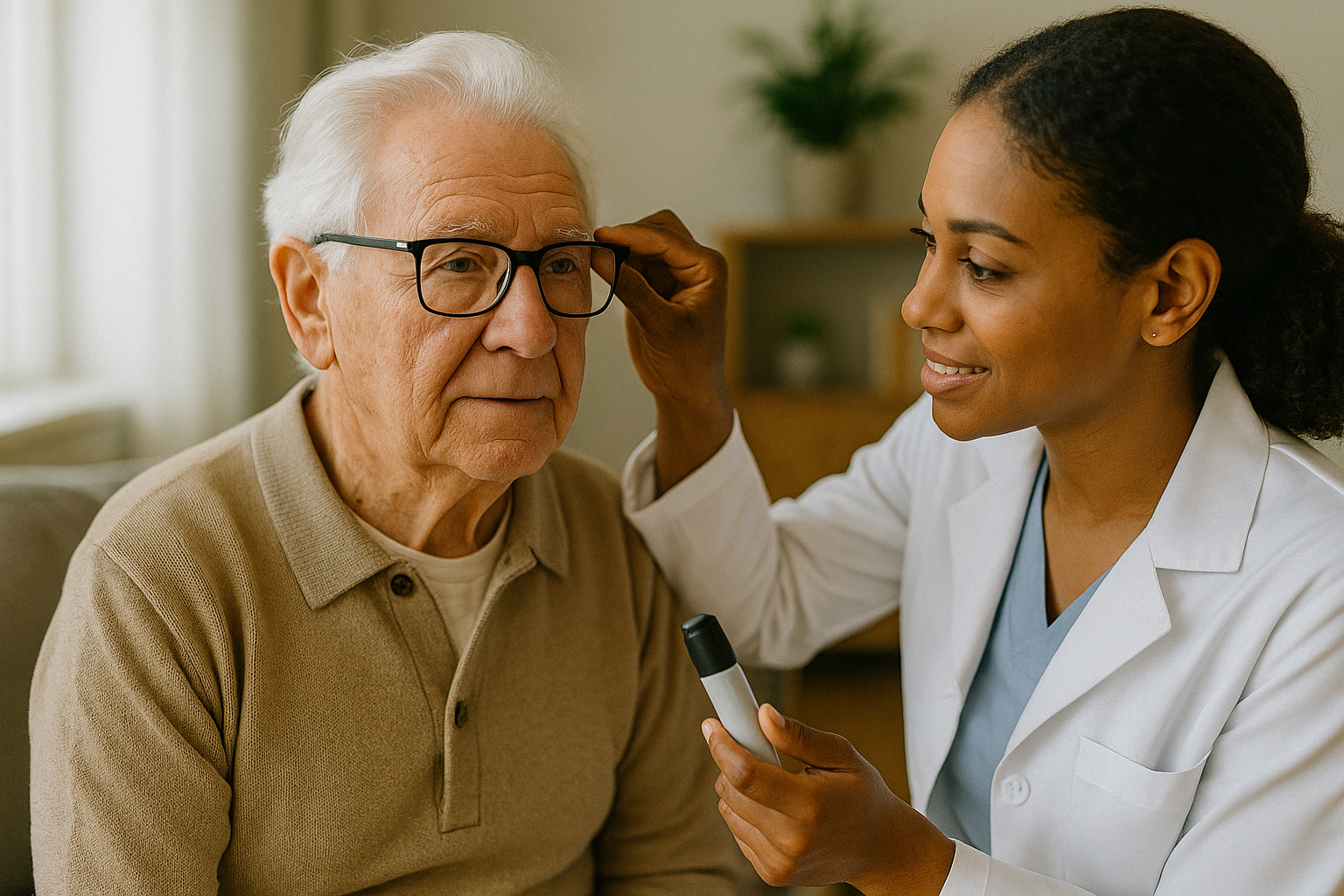
Why Vision & Hearing Support matters
Seeing and hearing clearly are essential for safety, confidence, and connection. Yet small changes—like softer sounds, dimmer light, or blurry text—can quietly chip away at independence. Many older adults wait too long before asking for help because these changes come gradually. But with the right routines and awareness, vision and hearing can stay strong for years.
Our approach
We use plain, friendly conversation to help people test and tune their senses safely. The assistant can guide you through a simple brightness or sound check, remind you to clean your glasses or hearing aids, and help you describe what’s changing to your clinician. It can also read aloud printed instructions or short texts when your eyes feel tired. The focus is on small, practical improvements—better lighting near the reading chair, quieter rooms for phone calls, or adjusting font size on your tablet.
Safety first
Our role is to notice patterns, not diagnose. If you experience sudden loss of vision, ear pain, dizziness, or ringing, we’ll remind you to seek professional help right away. We never interpret test results or replace your audiologist or optometrist. Instead, we help you organize notes, reminders, and questions so that each visit feels calm and productive. When families stay observant, older adults stay connected—to people, to information, and to the world around them.
- 🌐 Choose your language
- 🎤 Tap “Speak”, then talk. Tap “Finish” when you’re done
- 💬 Or type and click “Send”
- 🔊 “Read Reply Aloud” for audio
- 🚩 “Stop” ends listening or playback
📱 iPhone/iPad: If audio is faint/silent, tap again or type then retry.
🎤 You’re now speaking with our Virtual Assistant about A.I ElderCare Vision & Hearing Support.

⏳ Responses may take a few seconds.

